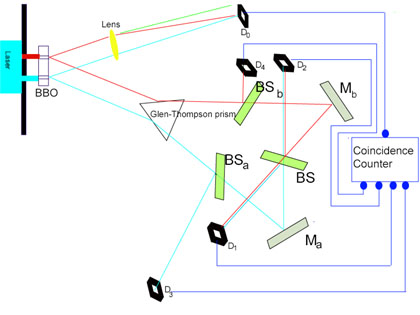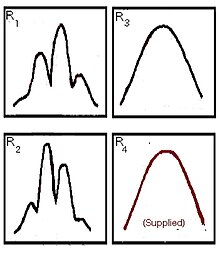What do people think the
consequences would be of humankind believing itself (in considerable numbers) to live within a simulation? Regardless of whether or not this is the case. Here are my thoughts:
“Simulism” is the belief that we humans and our reality are somehow simulated, most likely by some kind of advanced computer the likes of which we cannot imagine let alone understand and think about. The creators of The Simulation would be a race of super-advanced beings.
But what if the whole world – or more realistically a significant portion of it – came to believe we were living in a simulation? In this post I shall discuss the consequences this would have on humankind.
If we are in The Simulation then what does that say about our humanity? One term that has been used is “virtual human”. Such beings would be reincarnated somewhere within The Simulation once they die. The workings of reincarnation would be done from behind a veil of ignorance but would be scrupulously fair and perhaps somehow related to our conduct? Unless it’s done by blind chance. But the thing is, either way we would not know where on Earth (or any other planet) we would be reincarnated, which would be a powerful reason to make the whole of our world a good place to live, lest one gets reborn in some horrid corner.
The realisation we are within a simulation would I believe have a unifying effect – as we would all be equal participants of The Simulation, regardless of race, sex, sexuality, or whatever. Also, as we die and are reborn we would exist as different races and sexes, meaning that (for instance) in one life one could be a man and in another a woman. This would I believe make people take racial and gender equality much more seriously and would result in a more equal society.
In some lives we would live in poor, undeveloped countries and in others we would live in a rich, highly developed country. I believe we’d take it in turns to live good lives and bad lives, so it would be in all our interests to make the whole wide world a better place in which to live as we don’t know in what part of it we’ll be born into in our next life.
So basically, if a great number of us believed we were living in a simulation the world would, due to rational self-interest, become an increasingly equal and developed place.
Assuming The Simulation is mechanical as opposed to organic then that would mean that the so-called “hard problem of consciousness” has been solved, by the creators of The Simulation. If of course there is a valid distinction to be made between “mechanical” and “organic”.
Hard problem of consciousness - Wikipedia
Premise 1: The hard problem of consciousness must be solved to produce sentient AI
Premise 2: We are sentient AI
Conclusion 1: Somewhere, the hard problem of consciousness has been solved.
Conclusion 2: Sentient AI is therefore possible.
This is at least valid!
This would mean that human civilization within The Simulation could someday produce sentient Artificial Intelligence. Unless of course we humans will always be much less able than the creators of The Simulation! But we can at least imagine as a possibility a future in which we can produce Artificial Consciousness within The Simulation. It would follow that such beings would also be citizens of The Simulation, which would mean in one life a person could be a human, and in another some kind of sentient “machine”.
What would happen to religion if significant numbers of people started to believe that we are living in a simulation? I think the world’s religions would continue, no doubt. And that most people would not believe we’re in a simulation, at least initially. But perhaps people would embrace Simulism as some kind of secular humanist philosophy? I think if Simulism were to become a philosophy rather than a hypothesis then the world would become a much better place, as I’ve previously explained.
But of course, it is still possible to believe in Simulism and a Supreme Being – it’s just that there’s an extra layer between humanity and the Supreme Being (namely The Simulation admin and its overseers). I personally believe in an ineffable God who rules over the whole of ultimate reality. And it is entirely possible that the influence of the Supreme Being reaches into The Simulation. But we could never understand this being – God – just as an ant cannot understand subtraction or grammar.
I don’t believe the world’s religions are lies, based on things done by The Simulation rather than God although I did use to. I do not believe, for instance, that The Simulation gave Moses the Ten Commandments, whilst pretending to be God. I believe all human religions arise from a mix of history, culture, myths, and the imagination, and various things that either didn’t happen or did, but were either added to and subtracted from later on. But I still believe in God – perhaps a Deist God?
To some, the Simulism hypothesis may sound bleak. I think it’s an uplifting idea and that if people came to believe in it the world would eventually become a better place. It would also mean that it is possible for a species to become ultra-advanced, which would give science and technology something to aspire to, to learn what the over-seers know. Perhaps some day we will become post-singularity space-faring post-human species, and become the equal to those who created The Simulation. But basically, I believe that the future of this planet, were people to believe in Simulism, would be a much happier one.
But of course, whether or not we’d like it to be true has nothing to do with whether or not it is!



